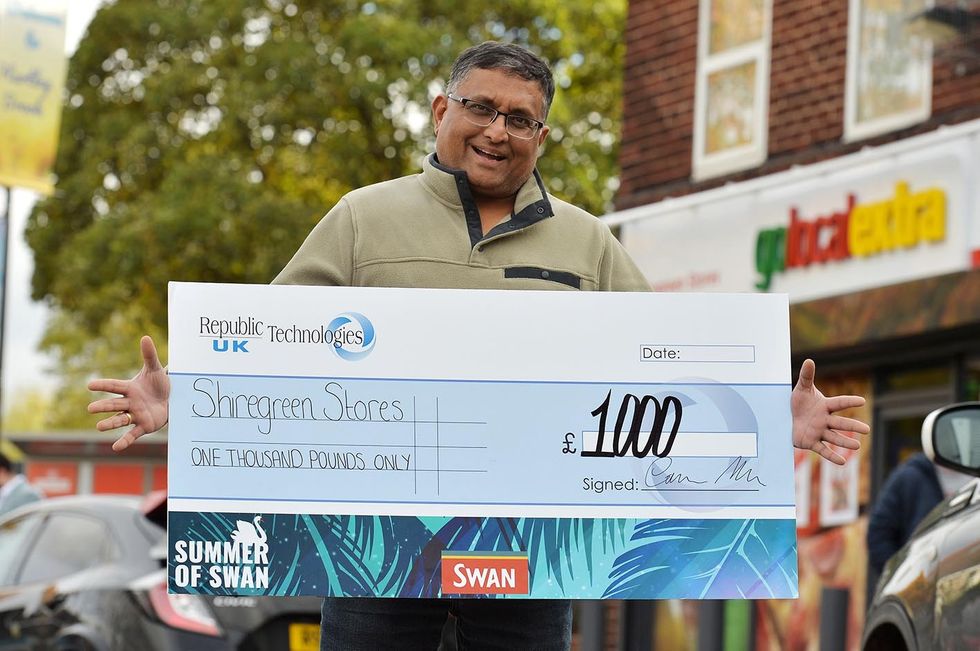TEMU has come under fire as many independent greetings card designers and creators accuse the Chinese online retailer of allowing design theft.
Multiple designers, who exclusively sell their designs on the greeting’s card marketplace, thortful, speak up on how their designs have been stolen and sold off at a discount price, claiming it has negatively affected their independent business.
“We've seen listings on TEMU claiming to have sold 100,000+ of our designs. I've no idea how true that is, but even a fraction of that severely impacts us," said Laura and Jack from Rutland, who design and trade as Paper Plane. "Every sale that someone else makes using our intellectual property is like stealing directly from our bank account.”
Sarah from West London, also known as "Silky Rose", adds, “I work very hard to create original designs and make sure not to copy other artists. I have a few select platforms that I sell my cards on, so seeing my designs showing up on large websites like TEMU, where I have not licensed the artwork, and knowing that someone else is profiting off my work is infuriating. Sadly, this is starting to happen more and more.
"It's honestly so disheartening to discover your designs being stolen. You get a horrible sinking feeling in your stomach. I've worked so hard to build up an original catalogue and put so much of myself into turning my designing into a business.”, she says.
Both designers claim copyright is the only protection they have but won’t protect them 100 per cent, with further action being costly.
Laura and Jack explained: “When our artwork is stolen, all we can do is ask for the site hosting it to remove it. Often, they do, but if they don't, the only recourse we have is to engage solicitors, which is prohibitively expensive.”
Thea, trading as Bold and Bright, said, “It’s been very time-consuming trawling their website trying to find my designs to report. As TEMU is a fairly new company, hopefully they will become a bit better ethically, especially after being called out on it. I’m not sure who can take direct responsibility to report the issue. - probably the designer, but the guidance from thortful is a big help.”
“Reporting every listing that has stolen my designs is very time consuming," added Sarah. "Now I run my small business part time, so every hour spent searching and then reporting it, is an hour less I could have spent working on new designs. As a small business I don't have the money to spend on fighting large companies if anything like this ever went to court. And the large companies know this.”
Whilst design theft is an issue that the designers say is becoming increasingly common, Sarah said that the card design community is supportive of each other. “We come together so strongly at times like this, and that's what keeps me going - small businesses standing together!”
“The Government must act, especially regarding the likes of TEMU and Shein. While it would be hard to stop them from stealing the art, they can make it harder for them to sell to the UK. The current customs duty fee structure is outdated. It allows these companies, with questionable human rights records, to flood the UK with cheap, often counterfeit, goods at the expense of British businesses.”, adds Laura and Jack.
The greetings card marketplace, thortful, on which both designers sell their cards, recognises more must be done and is lobbying with the Government to protect UK independent creators.
“Our creators put a huge amount of effort into their work, with some even exclusively partnering with us and relying on royalties from each card sale for their livelihoods," said thortful MD Pip Heywood. "When fast consumer marketplaces like TEMU take designs from our site, it undermines our creators. They’ve dedicated countless hours to develop their ideas, only to see them sold at low prices with no compensation.
“We won’t stand by and let our creators be exploited. We’ve worked with our legal team at Cripps to develop a template & step by step process for our creators to pursue a copyright claim directly as IP owners. Alongside this we are liaising with the Greeting Card Association and lobbying the Government directly - something which should chime with our new Government’s manifesto on protection of creative industries which stresses the importance of protecting intellectual property rights and ensuring creators are fairly compensated for their work.
"Lastly, we are petitioning TEMU directly to both rectify the current situation & understand their proposed checks & balances to ensure this cannot happen again."





















